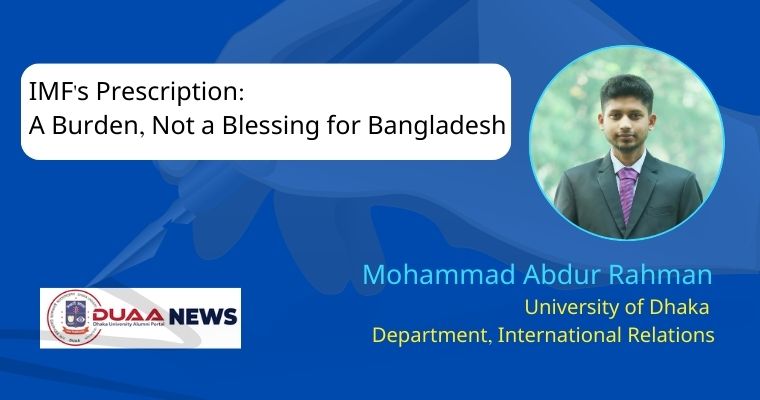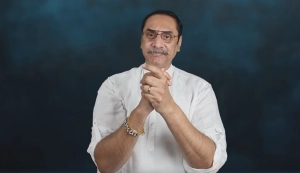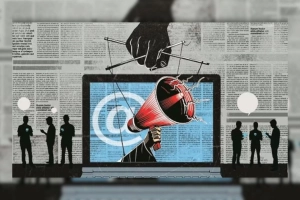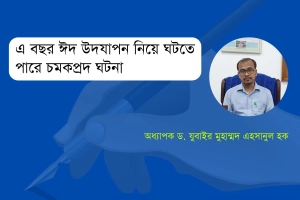ঢাকা, মঙ্গলবার, ১৬ ডিসেম্বর ২০২৫, ২ পৌষ ১৪৩২
IMF's Prescription: A Burden, Not a Blessing for Bangladesh

One of the major conditions of the IMF is to increase revenue collection through increased taxes. In a country like Bangladesh, where most of its people are middle or low-income earners, this is not an easy task. Over the years, the economy of Bangladesh has grown, but the government collection of taxes remains inefficient. Most of the businesses and people do not pay taxes, and the tax collection system is not effective. This is a problem, and one of the recommendations goes to increasing the number of taxpayers with higher tax rates for the government.
Of late, Bangladesh has moved to implement some of these suggestions. Taxes on a variety of goods and services have been increased. While apparently this may seem like a decent way to increase government revenues, it places additional burdens on ordinary people. For instance, increased taxes translate to increased prices of basic commodities such as food, fuel, and transport. Such a situation makes life difficult for families that are already struggling to make ends meet.
The IMF argues for stability in the economy. The more money a government collects means reduction of debt, which could be invested in health, education, and infrastructural development; though in actual sense, these taxes fall on ordinary people while leaving the rich and big corporations aside. Loopholes will enable the rich to wriggle through while middle and low-income families have no choices but to pay more.
Prescriptions of the IMF also call for subsidy cuts by the government. Subsidies are the financial assistants provided by the government to make vital items like fuel and electricity affordable by all. Their withdrawal or reduction brings about a steep rise in prices of such items. In a country like Bangladesh, where a big proportion of people lead their lives below the poverty line, such a price increase can send many more families into hardship.
These are not very new IMF policy outcomes for Bangladesh. Other countries like Argentina, Greece, and Pakistan have also suffered in similar ways from IMF loans. Many economies, after following the conditions set by the IMF, saw their economic growth slow down, unemployment rise, and inequality heighten in the short term. Though the IMF argues it creates policies yielding long-term benefits, the usual short-term pains create irreversible damage.
The latest rounds of tax hikes may bring in more money for the government, but they are not the long-term solution for Bangladesh. As long as inefficiencies remain in the system, raising the rate will not help attain actual progress. Reforms that bring in people and companies under the umbrella in a nondiscriminatory manner are what the country actually needs. Also, the rich and corporations have to pay their due share of contribution, and corruption in tax collection must be brought to an end.
Besides, the government has to think over the social aftermath of its decisions: the rapid growth of taxes and cuts in subsidies hurt the most vulnerable strata of society. What Bangladesh really needs is a balance between economic stability and social welfare, rather than moving according to the IMF recommendations through a blind alley. The government should undertake policies that would facilitate job creation, improve education, and provide affordable healthcare. These measures will help improve the economy for all, not just a selected few.
The intervention of the IMF in the Bangladeshi economy also raises several questions regarding whether the suggestions and recommendations by the IMF actually help the nation. Though its aim to upgrade financial stability is appreciable, the strategy of the IMF mostly neglects the challenges developing nations face. Bangladesh is a populous country, and the majority of its people have low-paid jobs. Forcing such a country to enhance taxes and cut subsidies without considering the after-effects can create serious issues.
The prescription of the IMF to Bangladesh is certainly not a blessing. Maybe it is quite beneficial in the long run, but the immediate repercussions are just too hard to cope with for ordinary people. Instead, the government should go for equity- and socially protective policies rather than toeing the line of conditions imposed by the IMF. The Bangladesh economy has immense potential, but the challenges must have solutions. Only then will actual development and success be realized.
Mohammad Abdur Rahman
University of Dhaka
Department, International Relations
পাঠকের মতামত:
সর্বোচ্চ পঠিত
- যে কারণে বাতিল হলো আজকের ব্রাজিল-আর্জেন্টিনা ম্যাচ
- মেডিকেল-ডেন্টাল ভর্তি পরীক্ষার ফল প্রকাশিত, এক ক্লিকেই জানুন ফলাফল
- আজ আর্জেন্টিনা বনাম ব্রাজিলর ম্যাচ: সরাসরি দেখবেন যেভাবে
- কিছুক্ষণের মধ্যেই মেডিকেল ভর্তির ফল প্রকাশ, জানবেন যেভাবে
- আগামীকাল ব্রাজিল বনাম আর্জেন্টিনার ম্যাচ: কখন, কোথায়-সরাসরি দেখবেন যেভাবে
- অনলাইনে যেভাবে দেখবেন ২০২৫-২৬ মেডিক্যাল ভর্তি পরীক্ষার ফল
- লাতিন বাংলা সুপার কাপ: আর্জেন্টিনা বনাম ব্রাজিলের খেলা নিয়ে যে সিদ্ধান্ত এলো
- আজ দুপুরে মেডিকেল-ডেন্টাল ভর্তির ফল প্রকাশ, জানবেন যেভাবে
- IPL মিনি নিলাম ২০২৬: কবে, কখন, জানুন বাজেট-বিস্তারিত
- IPL নিলাম ২০২৬: সরাসরি দেখুন এখানে (LIVE)
- আজ IPL নিলাম: জানুন সময়সূচি-সরাসরি দেখার উপায় (LIVE)
- সরকারি-বেসরকারি স্কুলে ভর্তি লটারি চলছে, সরাসরি (LIVE) দেখুন
- ভারত বনাম দক্ষিণ আফ্রিকা: কখন,কোথায়-যেভাবে দেখবেন টি-২০ ম্যাচটি
- মেডিকেল ভর্তি পরীক্ষায় দেশসেরা শান্ত, জেনে নিন কাট মার্ক
- বাংলাদেশ বনাম আফগানিস্তান: শ্বাসরুদ্ধকর ম্যাচটি শেষ-দেখুন ফলাফল









-300x200.jpg)

-100x66.jpg)

